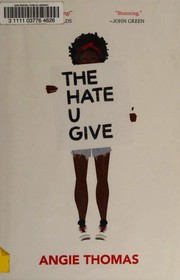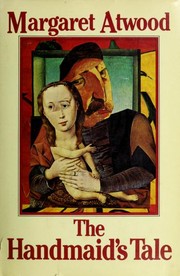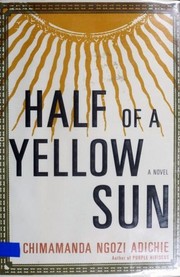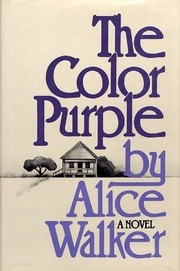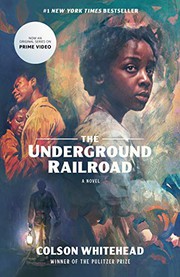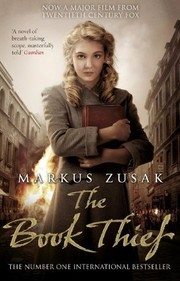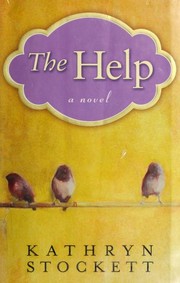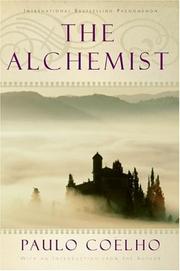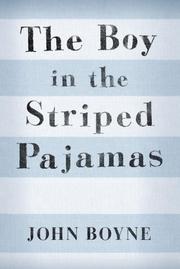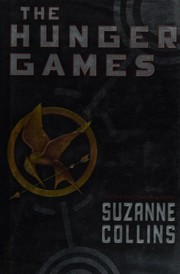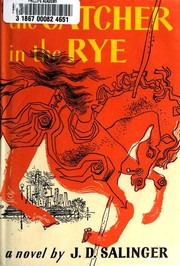Are you searching for compelling and thought-provoking books on oppression? Look no further! This curated list of the 20 best books about oppression will open your eyes to the various forms of injustice and discrimination that exist in our world. From powerful narratives to insightful analyses, these oppression books will challenge your perspective and inspire meaningful conversations. Let’s dive into these impactful works that shed light on the realities of oppression.
Contents
- 1 20 Best Books About Oppression
- 2 The Hate U Give
- 3 The Handmaid’s Tale
- 4 Beloved
- 5 Half of a Yellow Sun
- 6 The Color Purple
- 7 The Underground Railroad
- 8 A Thousand Splendid Suns
- 9 The Kite Runner
- 10 The Book Thief
- 11 The Help
- 12 The Diary of a Young Girl
- 13 The Alchemist
- 14 The God of Small Things
- 15 The Bluest Eye
- 16 The Immortal Life of Henrietta Lacks
- 17 The Boy in the Striped Pyjamas
- 18 The Giver
- 19 The Hunger Games
- 20 The Glass Castle
- 21 The Catcher in the Rye
- 22 Conclusion
- 23
- 24 The Soviet Union Books: A Curated 2024 Updated List
- 25 Unveiling the Best World History Books in this 2024 Update
- 26 Discover the Best Ancient Egypt Books in the 2024 Updated Edition
20 Best Books About Oppression
The Hate U Give
by Angie Thomas
The Hate U Give by Angie Thomas is a powerful and thought-provoking book about oppression, inequality, and the fight for justice. The story follows Starr Carter, a young black girl who witnesses the fatal shooting of her childhood friend, Khalil, by a police officer. As Starr grapples with the aftermath of the tragedy, she is faced with the harsh realities of systemic racism and police brutality in her community. Through her journey, the novel explores themes of identity, activism, and the impact of social injustices on marginalized communities. With its raw and honest portrayal of the struggles faced by black Americans, The Hate U Give is a poignant and timely reminder of the ongoing fight against inequality and prejudice.
The Handmaid’s Tale
by Margaret Atwood
The Handmaid’s Tale by Margaret Atwood is a gripping dystopian novel set in a totalitarian society called Gilead, where women are subjugated and used solely for procreation. The story follows Offred, a handmaid who is forced to bear children for the ruling class. Atwood’s haunting portrayal of a society where women are stripped of their rights and autonomy is a powerful commentary on the dangers of religious extremism and the oppression of women. The novel’s thought-provoking exploration of gender, power, and control has made it a timeless classic and a must-read for anyone interested in a book about oppression. With its chilling portrayal of a world where individual freedoms are ruthlessly suppressed, The Handmaid’s Tale serves as a stark warning about the consequences of unchecked power and the importance of fighting against oppression.
Beloved
by Toni Morrison
Beloved by Toni Morrison is a haunting and powerful book about the impact of slavery on the human psyche. Set in post-Civil War Ohio, the story follows Sethe, a former slave who is haunted by the memory of her baby daughter, whom she killed rather than allowing her to be captured and returned to slavery. The arrival of a mysterious young woman, who may or may not be the reincarnation of Sethe’s lost child, forces Sethe to confront her past and the trauma of slavery. Through beautiful prose and a gripping narrative, Morrison explores the lasting effects of oppression, trauma, and the search for freedom and identity. Beloved is a profound and deeply moving exploration of the legacy of slavery, making it a must-read for anyone interested in the lasting impact of historical oppression.
Half of a Yellow Sun
by Chimamanda Ngozi Adichie
Half of a Yellow Sun is a compelling novel by Chimamanda Ngozi Adichie that delves into the lives of three characters during the Nigerian Civil War. Set in the 1960s, the story follows the intertwined lives of a university professor, his girlfriend, and their houseboy as they navigate the tumultuous political landscape and personal struggles brought on by the war. Through Adichie’s vivid storytelling, readers are transported into a world of love, betrayal, and resilience amidst the chaos of war and oppression. The novel provides a poignant exploration of the impact of conflict on individuals and the broader society, making it a powerful and thought-provoking read. With its rich historical context and deeply human characters, Half of a Yellow Sun is a poignant and evocative book about oppression that lingers in the mind long after the final page.
The Color Purple
by Alice Walker
The Color Purple by Alice Walker is a powerful and moving novel that delves into the lives of African American women in the 1930s. The story follows Celie, a young girl who is subjected to abuse and oppression at the hands of her father and later her husband. Through a series of letters, Celie shares her experiences, struggles, and triumphs as she navigates a world filled with racism, sexism, and violence. The novel explores themes of resilience, sisterhood, and the quest for self-discovery in the face of adversity. With its raw and honest portrayal of the struggles faced by women of color, The Color Purple is a profound and essential book on oppression that continues to resonate with readers today.
The Underground Railroad
by Colson Whitehead
The Underground Railroad by Colson Whitehead is a powerful novel that delves into the harrowing experiences of Cora, a young slave in the 1800s. This gripping book about oppression follows Cora as she escapes from a Georgia plantation and embarks on a treacherous journey through the Underground Railroad, which is depicted as an actual network of underground trains and hidden passages. Whitehead’s vivid prose and unflinching portrayal of the brutality of slavery make this book on oppression a deeply affecting and thought-provoking read. As Cora travels through different states, readers are confronted with the various forms of oppression she encounters, shining a light on the enduring legacy of slavery in America. The Underground Railroad is a searing exploration of resilience, survival, and the indomitable human spirit in the face of unimaginable adversity.
A Thousand Splendid Suns
by Khaled Hosseini
A Thousand Splendid Suns is a heart-wrenching novel by Khaled Hosseini that delves into the lives of two Afghan women, Mariam and Laila, whose paths intertwine in unexpected ways. Set against the backdrop of war and political upheaval, the story explores the themes of resilience, sacrifice, and the enduring power of love in the face of adversity. Hosseini masterfully weaves a tale of friendship and survival amidst the oppressive patriarchal society, providing a poignant portrayal of the struggles faced by women in Afghanistan. The novel is a poignant and gripping account of the resilience of the human spirit in the face of unimaginable hardships, making it a must-read for anyone seeking a powerful narrative about the enduring human spirit in the face of oppression.
The Kite Runner
by Khaled Hosseini
The Kite Runner by Khaled Hosseini is a powerful and compelling novel that tells the story of Amir, a young boy from Kabul who is haunted by the guilt of betraying his loyal friend Hassan. Set against the backdrop of Afghanistan’s tumultuous history, the novel explores themes of redemption, loyalty, and the devastating effects of betrayal. Through the vivid portrayal of the characters and the richly detailed narrative, Hosseini takes readers on a journey through the complexities of friendship, family, and the search for personal and societal redemption. The Kite Runner is a poignant and thought-provoking book about oppression, discrimination, and the enduring impact of personal choices. It is a must-read for anyone interested in a compelling and emotionally resonant story that sheds light on the human experience in the face of adversity.
The Book Thief
by Markus Zusak
The Book Thief by Markus Zusak is a powerful and poignant story set in Nazi Germany during World War II. It follows the life of a young girl named Liesel, who finds solace and escape through stealing books and sharing them with others during a time of intense book censorship and oppression. The novel explores themes of resilience, love, and the human spirit’s ability to endure in the face of adversity. With beautiful prose and unforgettable characters, The Book Thief is a captivating and heart-wrenching tale that will stay with readers long after they’ve turned the final page. This book about oppression is a reminder of the importance of storytelling and the enduring power of literature, even in the darkest of times.
The Help
by Kathryn Stockett
The Help by Kathryn Stockett is a powerful novel that delves into the complexities of race, class, and gender in 1960s Mississippi. The story follows three women – two black maids and a young white woman – as they form an unlikely alliance to challenge the societal norms of the time. Through their secret writing project, they expose the oppression and mistreatment faced by the black maids at the hands of their white employers, risking everything to make their voices heard. This compelling and thought-provoking book on oppression shines a light on the injustices and struggles faced by those marginalized in society, while also highlighting the strength and resilience of the human spirit in the face of adversity.
The Diary of a Young Girl
by Anne Frank
The Diary of a Young Girl, written by Anne Frank, is a poignant and personal account of a young Jewish girl’s experience during the Holocaust. This gripping book about oppression reveals Anne’s thoughts, fears, and hopes as she and her family hide from the Nazis in an attic in Amsterdam. Through her words, readers are transported to the harrowing reality of life in hiding, as well as the emotional turmoil of adolescence. Despite the unimaginable circumstances, Anne’s resilience and unwavering spirit shine through her diary, making it a powerful testament to the human spirit in the face of adversity. Her diary is a timeless reminder of the horrors of war and the strength of the human will, making it a must-read for anyone seeking to understand the impact of oppression on individuals.
The Alchemist
by Paulo Coelho
The Alchemist by Paulo Coelho is a captivating tale of a young Andalusian shepherd named Santiago who embarks on a journey to discover his Personal Legend. This timeless classic is about self-discovery, following one’s dreams, and the pursuit of one’s destiny. The novel is filled with rich symbolism and allegorical storytelling that resonates with readers of all ages. Coelho’s writing style is both poetic and philosophical, making it a thought-provoking and inspiring read. Throughout the story, Santiago faces various obstacles and learns valuable life lessons, making this book a profound exploration of the human spirit and the universal quest for fulfillment. The Alchemist is a must-read for anyone seeking a deeper understanding of the human experience and the trials and triumphs we encounter on our own personal journeys.
The God of Small Things
by Arundhati Roy
The God of Small Things is a powerful novel by Arundhati Roy that delves into the complexities of family, love, and the oppressive social hierarchy in India. Set in the southern state of Kerala, the story follows the lives of fraternal twins Estha and Rahel, whose lives are shaped by the rigid social structure and the oppressive forces of tradition, caste, and colonialism. Through Roy’s lyrical prose, the novel explores the small moments that lead to profound consequences, and the ways in which love and desire are constrained by societal norms. The God of Small Things is a poignant and thought-provoking book about oppression, and it offers a searing portrayal of the impact of societal expectations and the struggle for freedom and self-expression.
The Bluest Eye
by Toni Morrison
The Bluest Eye by Toni Morrison is a powerful and haunting novel that delves into the complexities of race, beauty, and identity. Set in 1940s Ohio, the story follows Pecola Breedlove, a young African American girl who longs for blue eyes, believing that they will bring her the love and acceptance she craves. Through Pecola’s heartbreaking journey, Morrison explores the devastating effects of societal beauty standards, racism, and trauma. The novel provides a poignant and unflinching look at the systemic oppression faced by Pecola and others like her, making it a compelling book about oppression. Morrison’s lyrical prose and masterful storytelling create a deeply affecting narrative that challenges readers to confront the harsh realities of prejudice and the damaging impact it has on individuals and communities.
The Immortal Life of Henrietta Lacks
by Rebecca Skloot
The Immortal Life of Henrietta Lacks by Rebecca Skloot is a captivating nonfiction book that delves into the intersection of science, ethics, and the experience of a Black woman in America. The book chronicles the life of Henrietta Lacks, whose cells were taken without her consent and became the foundation for countless medical breakthroughs. Skloot weaves together the story of Henrietta’s cells with the impact they had on medicine, while also exploring the Lacks family’s struggles with poverty, discrimination, and medical injustice. This powerful narrative sheds light on the enduring legacy of Henrietta’s cells and the systemic oppression faced by Black individuals in the medical field. It’s a thought-provoking and eye-opening read that exposes the complexities of medical research and the lasting effects of exploitation and marginalization.
The Boy in the Striped Pyjamas
by John Boyne
The Boy in the Striped Pyjamas by John Boyne is a heart-wrenching tale of friendship and innocence set against the backdrop of the Holocaust. It follows the story of Bruno, a young boy whose father is a Nazi commandant, and Shmuel, a Jewish boy held captive in a concentration camp. As Bruno and Shmuel form an unlikely friendship, the novel delves into the themes of prejudice, discrimination, and the horrors of war. Through the innocent eyes of the two boys, the book vividly portrays the devastating impact of oppression and the human capacity for empathy and compassion. The Boy in the Striped Pyjamas is a powerful and poignant exploration of the profound effects of oppression on individuals and the enduring strength of the human spirit.
The Giver
by Lois Lowry
The Giver by Lois Lowry is a captivating dystopian novel that delves into the themes of control, conformity, and the human desire for freedom. Set in a seemingly perfect society, the book follows Jonas, a young boy who is chosen to receive the memories of the past from the Receiver of Memory. As Jonas learns about the true nature of his society, he begins to question the oppressive rules and regulations that govern every aspect of his life. The novel explores the consequences of a world where individuality is suppressed and emotions are controlled, making it a thought-provoking read for anyone interested in a book about oppression. With its powerful storytelling and thought-provoking themes, The Giver is a must-read for those who appreciate a compelling narrative that challenges societal norms.
The Hunger Games
by Suzanne Collins
The Hunger Games by Suzanne Collins is a dystopian novel that explores the theme of a society’s control and the fight for survival. Set in a post-apocalyptic world, the story follows Katniss Everdeen, a young girl who volunteers to take her sister’s place in a deadly televised competition known as the Hunger Games. The government of Panem, the book’s fictional nation, uses the Games to assert its power and keep the districts in line through fear and oppression. As Katniss navigates the brutal arena, she becomes a symbol of rebellion against the oppressive regime. The novel delves into themes of power, control, and the resilience of the human spirit in the face of adversity. It’s a gripping and thought-provoking book about oppression that captivates readers with its compelling characters and thrilling plot.
The Glass Castle
by Jeannette Walls
The Glass Castle by Jeannette Walls is a captivating memoir that delves into the author’s tumultuous and unconventional upbringing. Walls recounts her experiences growing up in a dysfunctional and impoverished family, constantly on the move and struggling to make ends meet. The book offers a raw and unflinching look at the challenges of poverty, neglect, and the resilience of the human spirit. Walls’ poignant storytelling and vivid descriptions draw readers into her world, making them feel the pain, hope, and determination that defined her journey. The Glass Castle is a powerful exploration of resilience and the human capacity to overcome adversity, making it a compelling read for anyone interested in a deep and moving story of perseverance in the face of hardship. It is a book about overcoming obstacles and rising above adversity, making it a must-read for anyone seeking inspiration in the face of adversity.
The Catcher in the Rye
by J.D. Salinger
The Catcher in the Rye is a classic novel written by J.D. Salinger that follows the story of Holden Caulfield, a disenchanted teenager who is struggling with the phoniness of the adult world. Throughout the book, Holden grapples with feelings of alienation and disillusionment, as he navigates through the complexities of growing up. The novel explores themes of rebellion, isolation, and the search for authenticity in a world that often feels oppressive and stifling. Holden’s journey is a poignant portrayal of the universal struggle against societal constraints and the desire for freedom and authenticity. The Catcher in the Rye is a timeless coming-of-age story that continues to resonate with readers, making it a must-read for anyone interested in a book about oppression and the human experience.
Conclusion
In conclusion, these 20 best books about Oppression provide valuable insights into the various forms of oppression experienced by individuals and communities around the world. From historical accounts to personal narratives, these books shed light on the impact of oppression and the resilience of those who have fought against it. Whether you are seeking to better understand oppression or looking for inspiration to advocate for change, these books offer a powerful and thought-provoking reading experience.
Which Oppression book is best?
The best book on Oppression can vary with personal preference, but three widely recommended titles are:
Each offers valuable insights and could be a great starting point.
What are the best books to learn about Oppression?
For those looking to learn about Oppression, there is a wealth of literature that can provide a comprehensive understanding of the subject. Some of the most highly recommended books include:
- The Hate U Give by Angie Thomas,
- The Handmaid’s Tale by Margaret Atwood,
- Beloved by Toni Morrison,
- Half of a Yellow Sun by Chimamanda Ngozi Adichie,
- The Color Purple by Alice Walker,
- The Underground Railroad by Colson Whitehead,
- A Thousand Splendid Suns by Khaled Hosseini,
- The Kite Runner by Khaled Hosseini,
- The Book Thief by Markus Zusak,
- The Help by Kathryn Stockett
These books offer a range of perspectives on Oppression, covering various aspects and approaches to the subject.
What are the best books on Oppression?
The best books on Oppression include:
- The Hate U Give by Angie Thomas,
- The Handmaid’s Tale by Margaret Atwood,
- The Diary of a Young Girl by Anne Frank,
- The Alchemist by Paulo Coelho,
- The Kite Runner by Khaled Hosseini,
- The Underground Railroad by Colson Whitehead.
Each offers unique insights into the subject. While these books on the topic of Oppression are highly regarded, it’s important to note that any list of ‘best’ books is subjective and reflects a range of opinions.
What are the best Oppression books of all time?
Choosing the best Oppression books of all time can vary depending on who you ask, but seven titles that are often celebrated include
- The Hate U Give by Angie Thomas,
- The Handmaid’s Tale by Margaret Atwood,
- The Color Purple by Alice Walker,
- The Kite Runner by Khaled Hosseini,
- The Help by Kathryn Stockett,
- The Alchemist by Paulo Coelho,
- and The Diary of a Young Girl by Anne Frank.
Each of these books has made a significant impact in the field of Oppression and continues to be influential today.

